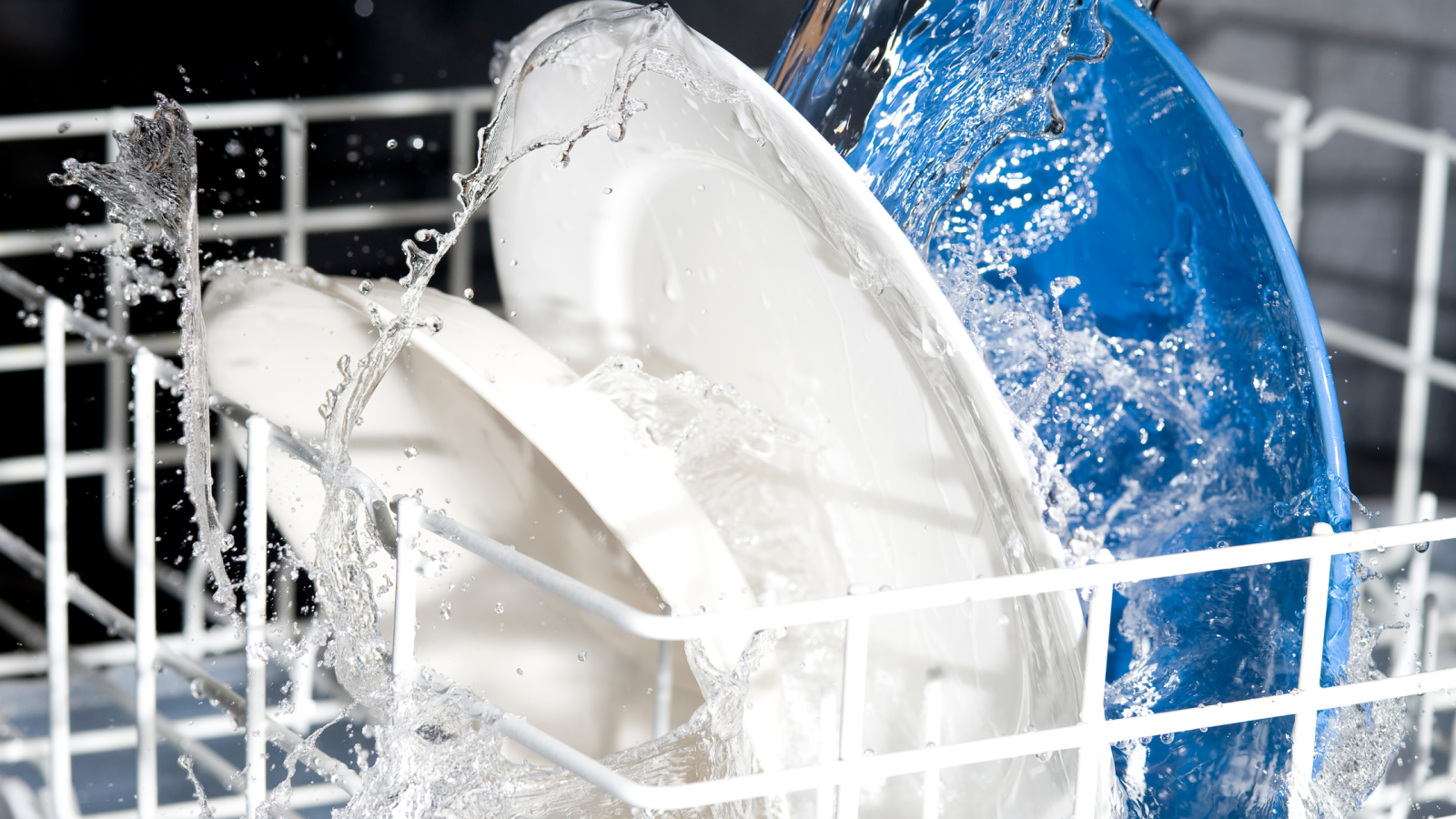
When it comes to cleaning up after dinner, most of us just want to get it done and move on. But have you ever stopped to wonder which method is more efficient—washing dishes by hand or using the dishwasher? And more importantly, what’s the impact on your electricity, water bill, and septic system? Here at FJ Rabon, we like to educate our customers on what’s the best practices for different types of household routines that can affect the health and longevity of your septic system.
So let’s break it down.
When considering energy use alone, a dishwasher is generally more energy-efficient than hand washing, especially modern, Energy Star-certified models. This is primarily because dishwashers use less hot water compared to the amount typically used when washing a full load of dishes by hand.
When it comes to the impact on a septic tank, the situation is more nuanced:
Dishwasher:
- Water Volume: Modern dishwashers use significantly less water per load (around 3-5 gallons for Energy Star models, older models may use more) compared to hand washing the same amount of dishes (which can use up to 27 gallons). Reducing water volume is generally better for a septic system as it prevents overloading and allows more time for the natural breakdown process.
- Detergents: Many traditional dishwasher detergents contain harsh chemicals like phosphates and surfactants that can harm the beneficial bacteria in your septic tank, hindering its ability to break down waste. Look for septic-safe and eco-friendly dishwasher detergents.
- Food Scraps: Dishwashers don't effectively break down food scraps. It's crucial to scrape dishes thoroughly before loading to prevent excessive solids from entering the septic tank, which can lead to faster filling and potential clogs.
- Hot Water: Dishwashers use hot water, which, in moderation, is fine. However, excessive hot water from multiple appliances used simultaneously can disrupt the bacterial balance in the septic tank. Spacing out the use of high water-usage appliances, including the dishwasher, is advisable.
- Salt-based Water Softeners: If you have a salt-based water softener, ensure the backwash does not enter the septic tank, as the high salt content can harm the system.
Hand Washing:
- Water Volume: Hand washing typically uses a much larger volume of water, especially if you let the tap run continuously or use a double sink with a separate rinse basin. This increased water flow can overload the septic system.
- Soaps: Many hand dish soaps can also contain chemicals that are not septic-safe. Similar to dishwasher detergents, it's best to use biodegradable and septic-safe options.
- Food Scraps: Food scraps washed down the drain during hand washing can directly enter the septic tank, contributing to solid buildup.
- Grease and Oils: Fats, oils, and grease (FOG) should never be poured down the drain, whether from hand washing or using a dishwasher, as they can solidify and clog the septic system.
Electricity Costs
Dishwashers do use electricity—mainly to heat water and dry dishes—but they’ve become much more energy efficient. Most modern units cost $0.10–$0.50 per load, depending on local rates and features. That’s not much when you consider how long you’d be running hot water to do it by hand.
What Does This Mean for Your Septic System?
Every drop of water that goes down your drain ends up in your septic tank. That means high water use from long dishwashing sessions can add up—especially during holidays or summer months when guests are over and meals are more frequent.
On average:
- A typical septic tank sees 50–70 gallons per person per day
- Seasonal increases (summer cookouts, holiday dinners) can push that even higher
And while your dishwasher might seem like a big contributor, it’s actually more efficient when compared to hand-washing for multiple meals a day.
How Often Should a Septic Tank Be Cleaned?
Regular maintenance is key. We recommend:
- Every 3–5 years for most homes
- More often if you have a large household, a garbage disposal, or heavy water usage
Waiting too long can cause backups, foul odors, and costly repairs. Trust us—it’s easier to schedule a routine cleanout than deal with a full-blown septic emergency.
Need Help? Call the Pros at FJ Rabon Construction
If you’re not sure when your septic tank was last cleaned—or if your water usage is higher than average—it’s a good time to schedule a check-up. At FJ Rabon Construction, we’ve been providing honest, reliable septic service in the Camden area for years. We’ll help you keep things flowing, no matter how many dishes you’re washing.
Call us today at 803-438-1075 or fill out our webform to schedule a service or ask a question.

